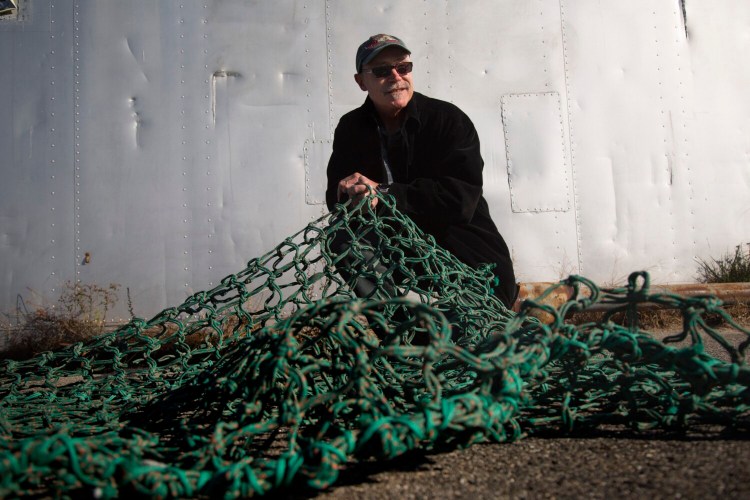The Portland marine science lab that first told the world the Gulf of Maine is warming faster than almost any other part of the ocean is launching a virtual climate center that will focus on finding solutions to the challenges related to ocean warming.
Under this virtual banner, the Gulf of Maine Research Institute hopes to leverage its science and educational expertise to help fishermen, policymakers, and coastal communities in Maine and around the world deal with the consequences of rising ocean temperatures.
“We’ve spent the last decade identifying warming trends and associated challenges,” said Don Perkins, a Maine native who has been at GMRI’s helm for almost 25 years. “We’ll spend the next decade identifying solutions to some of those challenges and helping coastal communities adapt to a warming future.”
GMRI began looking at sea temperatures in 2012, when the Gulf of Maine experienced what was then its warmest year ever. That was the year when lobsters molted six weeks ahead of schedule, creating a glut of new shell lobsters before anybody was ready for them, sending prices tumbling.
The early molt, coupled with a parade of warm water species like black sea bass and blue crab that locals began bringing into the lab, prompted GMRI scientists to examine temperature data, where they made a shocking discovery: The Gulf of Maine is warming at three times the global ocean average.
Since 2004, GMRI found the Gulf has warmed faster than 99 percent of the global oceans, a trend GMRI researchers attribute to global warming, caused by higher carbon dioxide emissions, and changing ocean currents, caused at least in part by melting arctic ice. And the trend is only getting worse.
GMRI already has several major climate projects underway that would fall under the umbrella of its new center, like hosting a coastal climate resilience symposium this fall, studying how fisheries will change as oceans warm, and helping coastal communities prepare for sea level rise.
In a state like Maine, with its 3,500 miles of coastline and an economy that depends on its $485 million-a-year lobster industry, long-term changes in state fisheries and ocean waters that – like the rest of coastal New England – are expected to climb 3.6 inches over the next decade are of utmost public importance.
GMRI has overhauled its LabVenture program – which has been inviting Maine middle schoolers to learn about the Gulf of Maine at its Commercial Street lab for years – to focus on climate science, and soon plans to expand that program to include adult learning.
Perkins said new funding and partnerships will be announced in the coming months to support climate-ready fishery management, aquaculture business planning, seafood supply chain innovation, and advice on possible mitigation policy options.
“Our scientific perspective is balanced by decades of experience delivering education programs and convening diverse groups of marine stakeholders to solve complex problems,” Perkins said. “This integrated approach prepares us to tackle the challenge of supporting real-world climate decisions.”
GMRI began with a staff of 20 and an operating budget of $3.5 million, but now employs more than 70 scientists, seafood experts and educators on an annual budget of $11 million. Last year it completed a four-year capital fundraising campaign that raised $22.8 million.
Send questions/comments to the editors.




Success. Please wait for the page to reload. If the page does not reload within 5 seconds, please refresh the page.
Enter your email and password to access comments.
Hi, to comment on stories you must . This profile is in addition to your subscription and website login.
Already have a commenting profile? .
Invalid username/password.
Please check your email to confirm and complete your registration.
Only subscribers are eligible to post comments. Please subscribe or login first for digital access. Here’s why.
Use the form below to reset your password. When you've submitted your account email, we will send an email with a reset code.